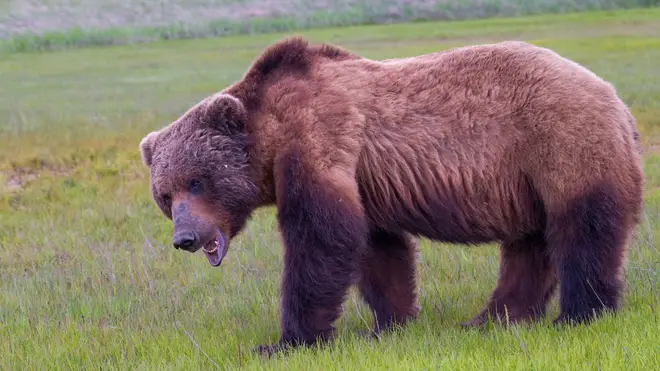
Simon Marks 3pm - 7pm
23 July 2021, 10:40 | Updated: 23 July 2021, 10:57

A man has been rescued after fending off attacks by a grizzly bear for over a week at a remote camp in Alaska.
Found injured, and with almost no ammunition left for his weapon, the man managed to alert the US Coast Guard with an SOS message on the roof of a shack.
He was found waving his arms in the air calling for help while carrying a white flag in the Alaska 'bear country' near a remote mining camp, around 40 miles from Nome where he had been staying since July 12.
A helicopter crew on their way to fly a team of scientists on a wildlife research mission found the man by chance when they were diverted off-course by bad weather and spotted the distress message.
He was found with bruising to his chest and an injured leg he had taped up. The door to his shack had been ripped off the hinges.
"At some point, a bear had dragged him down to the river," Lieutenant Commander Jared Carbajal told the New York Times.
"He had a pistol. He said that the bear kept coming back every night and he hadn't slept in a few days."
He was said to have only two bullets left when he was found.The bear initially attacked him and dragged him towards a river but he managed to escape.
He then spent several nights fighting off the bear with no sleep. He was about to run out of bullets when his SOS was finally seen.
The rescue helicopter's co-pilot said: "We don’t really come across people in the middle of nowhere.
"He was kind of struggling. When we came around he was on his hands and knees waving a white flag.
"He definitely looked like he had been out there for a while."
He has not been named but officials said he is in his late 50s or early 60s and had been reported to not have returned home on time from the trip by friends.
He was flown to hospital to get medical attention where his injuries were said to be not life-threatening.
Aggressive encounters with the species in the area are said to be "rare".